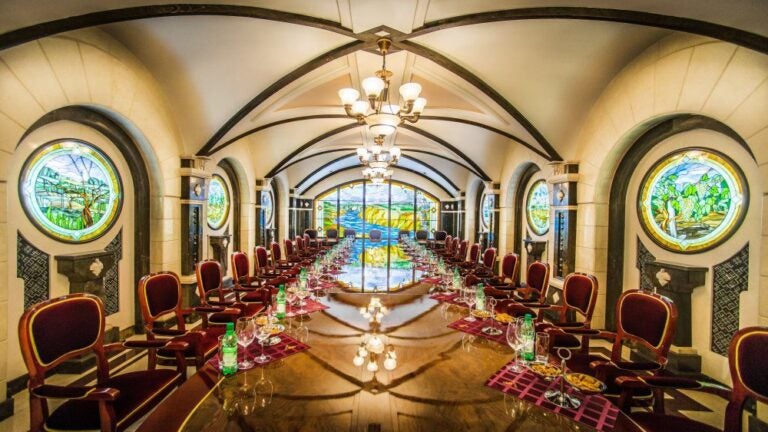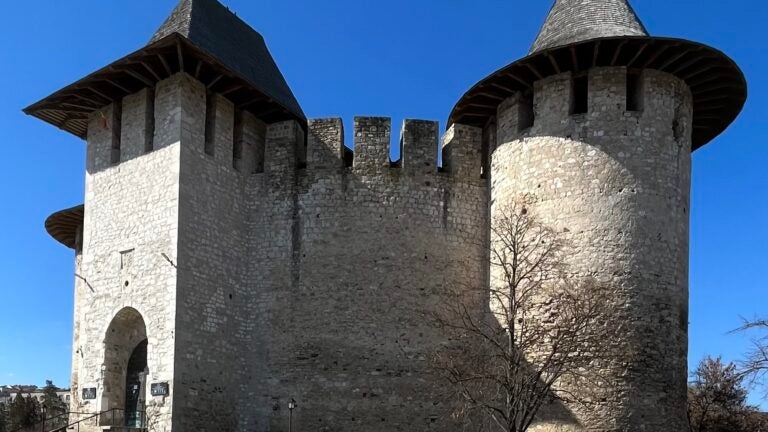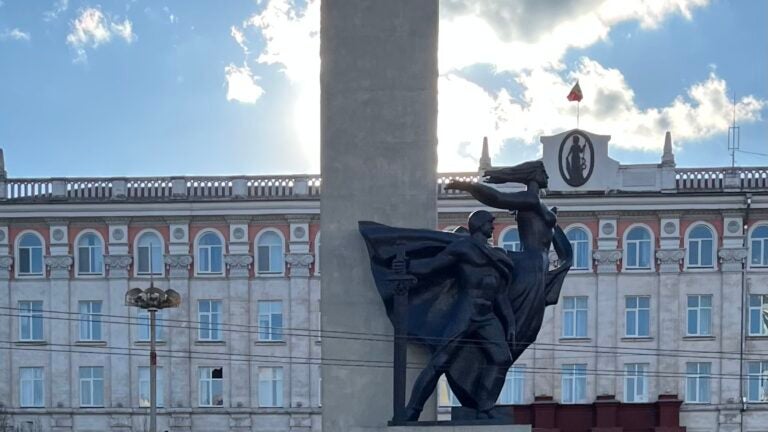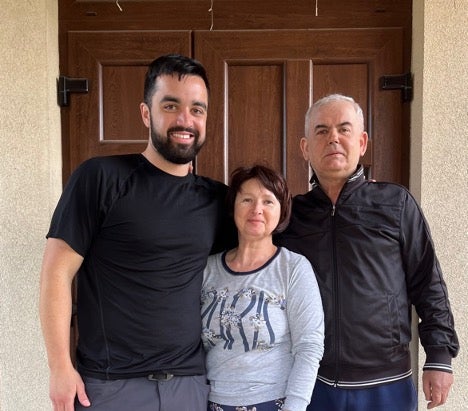Russian continues to be a lingua franca in numerous countries within the post-Soviet sphere. Mastery of the Russian language, paired with an understanding of Soviet cultural history and region-specific knowledge, aids individuals in government, NGOs, military, and other sectors in effectively communicating with locals. On this page, we will feature essays from our students who have firsthand experiences traveling and residing in Russophone communities.
Moldova
Moldova: The Convergence of Soviet and Eastern European Cultures
By Chris Gunning, USC ’22 (B.A. Russian). October 31, 2023
I landed in early February at Chisinau (capital and largest city) airport and stepping onto the tarmac, a frigid breeze welcomed me. My host family greeted me at the entrance of the relatively small airport, and we exchanged salutations and gifts. The first thing I noticed was how almost everywhere I looked, I saw a combination of Russian and Moldovan language, from signs and advertisements to announcements on the bus, it was apparent that Moldova was a country of blended cultures.
After a few days of administrative paperwork, settling in, and seeing the city, I started my classes. With four hours of lectures followed by two hours of study every day, I was fully immersed in the language and culture that I loved and had been learning about at the University of Southern California for three years. Having served in the Marine Corps for 10 years already I have traveled many places, but Moldova is unique. It is a small country on the outer edge of the former Soviet Union. Its culture is heavily influenced by the latter and also by modern Romanian culture. Even the language “Moldovan” is often referred to as a dialect of Romanian, instead of its own standalone language. Part of my classroom education was to learn about the history of Moldova and some of its more significant historical figures like Steven the Great, and important events like hosting Alexander Pushkin, World War II battles, and the collapse of the Soviet Union. We visited Christian Orthodox churches and spoke with monks as we toured monasteries. My favorite place was a small monastery built into the side of a mountain called “Old Orhei,” a site of ancient civilizations and the present location of two Orthodox chapels. What I enjoyed most about Old Orhei was the overwhelming feeling of reverence upon entering the cave chapel. It was a very peaceful place and we spent the afternoon learning how to cook traditional Moldovan cuisine at a nearby restaurant.
The next day we visited the famous winery “Cricova”: it is the second largest wine collection in the world, possessing some very valuable bottles. It also is an underground facility with over 75 miles of subsurface tunnels carved into the limestone. Our hosts were quick to point out the rich history of winemaking in Moldova and their pride was visible in every bottle they produced. Walking around the city, the architecture displays the legacy of the former Soviet Union in such buildings as the International Hotel and hearby statues. Street names too, like Yuri Gargarin Street, speak to the Soviet past. It was clear that the older generation of Moldovan citizens still bore nostalgia for Soviet culture. However, the younger generation and the country as a whole were moving toward their new, independent Moldovan identity.
My favorite part of the entire trip was meeting the Moldovan people. They are some of the most kind, beautiful, generous, genuine, and hardworking people I have ever met. It is no secret that Moldova is one of the poorest countries in Europe, historically due to its inept economic management, lack of major resources, and corruption. Yet despite all this, every single person that I spoke with was kind and welcoming. They are the type of people who would give everything they have despite having very little. They possess an eagerness to teach us about their traditional dances, music, and cuisine, and their hospitality is unmatched. Furthermore, there is a hopeful attitude in the air as to the future of the country, with their new President Maia Sandu wanting to bring Moldova into the European Union. I had the opportunity to teach English to young students aged 14-18 on a few occasions. I learned that there was a distinct difference in generations born pre- and post-Soviet Union. Many of my younger students did not speak Russian and grew up in households that spoke predominantly Moldovan. They did not possess a strong sense of Soviet culture and historical understanding like most of the 40+ individuals did. To me this represents a shift in the culture and I would not be surprised to see in the next twenty years an overall change in culture from Russian to more Romanian or independently Moldovan.
Overall my experience in Moldova was certainly a life changing and positive one. I learned much about the history, culture and languages of the region and its rich hospitality. I would certainly recommend going there to other students who want to study abroad as it drastically increased my mastery of the Russian language.



